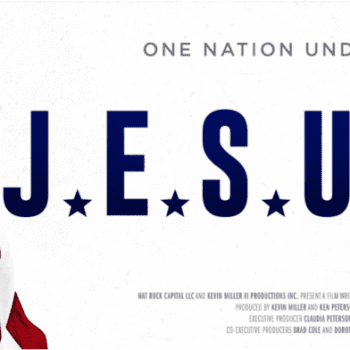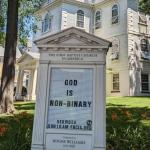
Year C, Christmas 1
December 27th, 2015
Thomas L. Truby
Colossians 3:12-17 (Common English Bible)
The Peace of Christ: Context and Questions
In year C the lectionary gets a little chaotic in the week after Christmas especially on a year when Christmas is on Friday. In those years Jesus is born on Friday and then turns twelve on Sunday when he is found in the Temple with missing parents. Then the following Sunday the Wise Men come for their traditional visit on the First Sunday of Epiphany. So, on this First Sunday after Christmas I could not bring myself to writing a sermon on Jesus just before beginning his teenage years.
I also knew that we would all be emotionally tired with short attention spans and there would be fewer of us. So I decided to do something a little different. I am going to read the Epistle text from Colossians and then ask some questions that develop from this passage and in route we may sing a Christmas carol or two.
Verse 12 reads, “Therefore, as God’s choice, holy and loved, put on compassion, kindness, humility, gentleness, and patience.” One of the words that have become quite popular in our culture is the word “aggressive” and our culture usually gives that word a positive value. (Aggressive in business, aggressive in sports, aggressive driver, aggressiveness equals success.)
1. How does the word “aggressive” square with the list of characteristics we are to put on if we want to follow our Lord? (We entered into a conversation that differentiated “aggressive” from “assertive” and even included the word “positive” to describe what is best for all. Our understandings became more nuanced as we talked and we could have gone on much longer. Everyone was very engaged.)
2. The writer provides a context for the list of imitable qualities. Can anyone spot that context and explain how that makes living in compassion, kindness, humility, gentleness and patience possible? (As I reflected on this question later, I realized we didn’t pursue it in our discussion at church. Answering my own question I wrote the following.) The issue of identity has been removed from the equation and no longer needs to factor in. We are God’s chosen, holy and loved. That’s who we are! Our identity is given to us and does not need to be grasped from some other person or group. Knowing this, the need to aggressively define or maintain our identity over against someone else, disappears. Knowing whose we are, we can “put on compassion, kindness, humility, gentleness, and patience.”
Verse 13 reads, “Be tolerant with each other and, if someone has a complaint against anyone, forgive each other. As the Lord forgave you, so also forgive each other.” 3. Of what sin (singular) have we been forgiven and why is that important? Is this forgiveness personal or does it include all human beings? (Thinking people would have trouble with this question, I provided my response. It turned into my sermon for the day.) I believe the sin we are all caught in that must be exposed and acknowledged is the use of exclusion and violence as a way of maintaining a temporary peace and a fragile and false identity. This is our human sin and much bigger than the sins we think of as bad behavior.
We have to know of what we have been forgiven for this forgiveness-stuff to be meaningful. The hardest truth to face is that expulsion and murder are at the foundation of all human culture. Our human sin is too awful and pervasive to acknowledge at all were it not that we are also forgiven. This is what the cross reveals and why we must constantly refer back to the cross. We are talking about the human species here and not just individual humans.
Verse 14 reads, “And over all these things put on love, which is the perfect bond of unity.” Love is like a blanket that is put over everything and this love is the perfect connector—and it isn’t just our love for each other; it is God’s love for us all. It is God’s love for us that holds us together. I think when we say “it’s all good, even what’s bad is good,” we are saying God’s love is behind, above, beneath and around us all, even when we can’t feel it. It is a trust statement and sometimes we do feel it; like on Christmas Eve when the candles are lit and we sing Silent Night.
In verse 15 the writer again directly tells us what we must do. Listen to the words, “The peace of Christ must control your hearts—a peace into which you were called in one body. And be thankful people.” 4. The peace of Christ must control our hearts. How do we do our part to keep the peace of Christ in control of our hearts when nearly everything we hear in the media and around us wants to disturb it? (Even the weather report) Is it a matter of focus? How do we change the focus and keep it changed? Is this peace just individual or does it characterize the whole community of the followers of Jesus? (We are called in one body.) (This series of question engendered considerable agreement about the forces against peace at all levels and much discussion on how to maintain inner peace. Some talked about focus; turning away from the TV and shutting off the noise. Others said they refused to listen to any news, read any article about what’s going on in the world and exclusively focused on their local community. I maintained there was also some really good stuff available out there too and in shutting everything out we lost the good stuff too.)
Verse 16 reads, “The word of Christ must live in you richly.” The word of Christ; what is it? It’s not just the words in red letters in your Bible; its way more than that and much deeper. I think of the Word from the prologue of the Gospel of John. There the Word is the structuring reality, the driver of everything, what really matters, what makes the world go round, the bottom line. For followers of Jesus the bottom line is a relationship, not an idea or a philosophy at all. It is a relationship of love initiated by Christ and seen in its most active and transparent expression in the death and resurrection of Jesus.
There is another “word” in contention with the word of Christ. Heraclitus, a Greek philosopher, writing before Plato, saw it and named it. That word is “war”. Heraclitus said that the structuring reality, the driver of everything, what really matters, what makes the world go round, the bottom line was war; might makes right. These two worlds are still in contention and as followers of Jesus “the word of Christ must live in us richly.” It is a different “word” than the “word” the world knows.
With this as a preamble I want now to finish verse 16. “Teach and warn each other with all wisdom by singing psalms, hymns, and spiritual songs. Sing to God with gratitude in your hearts.” 5. I want us now to select a couple of Christmas Carols, sing them and then examine them for what they have to teach us or how they might be a warning to us. (We did this and it was quite instructive.)
In verse 17 it says, “Whatever you do, whether in speech or action, do it all in the name of the Lord Jesus and give thanks to God the Father through him.” 6. How does doing something in the name of the Lord Jesus impact what we do or say? (I then briefly talked about Girard’s notion of “interdividual.” We are our relationships. We are not balloons floating in space and bumping into each other. We are constellations of relationships both past and present. You are a part of me and I am a part of you. We form each other and apart from you I am not the same. The Trinity is a model for this. Given all this, doing something or saying something in the name of the Lord Jesus is bound to impact what we do or say. As followers of Christ, we make Jesus central to that constellation of relationships that form who we are. All of this because we are not individual, as our culture so strongly maintains, but interdividual; formed of our network of relations. So again, how does doing or saying something in the name of the Lord Jesus impact what we do or say? We ended on this note of thoughtful questioning.)
I led in a pastoral prayer that attempted to pull it all together, thank God for his love and petition that we might live in view of it more and more. We then moved into the Lord’s Prayer. (After the service one person said she thought the Lord’s Prayer was a perfect summary of all that we had discussed.)















